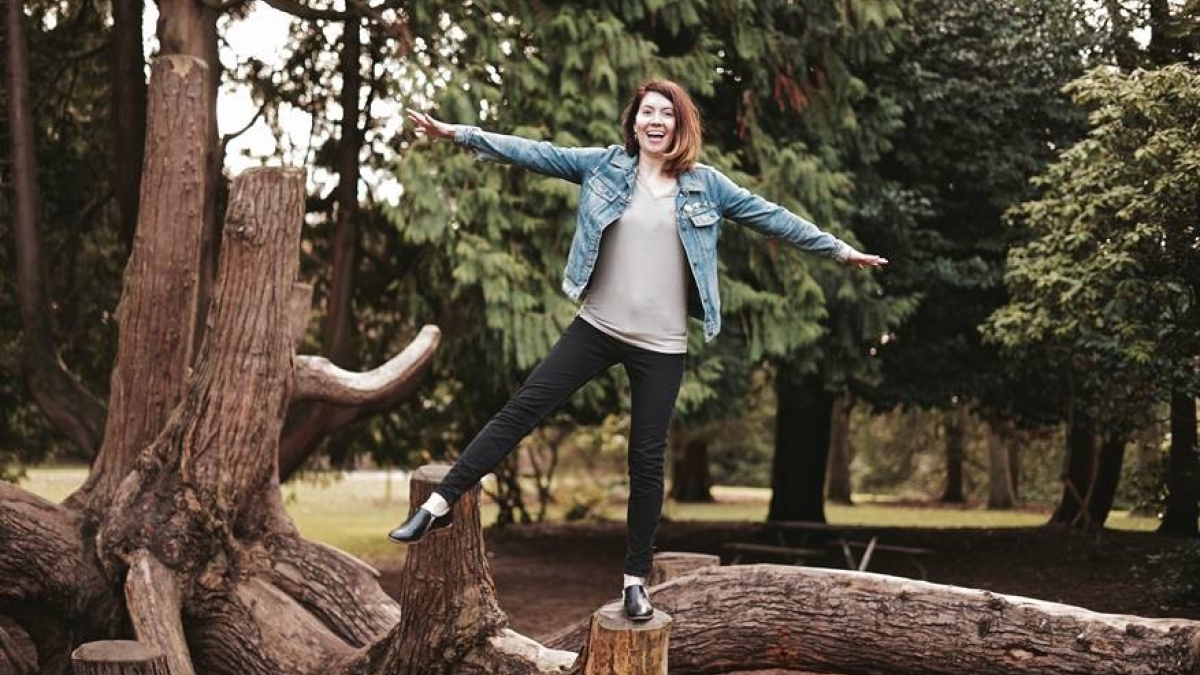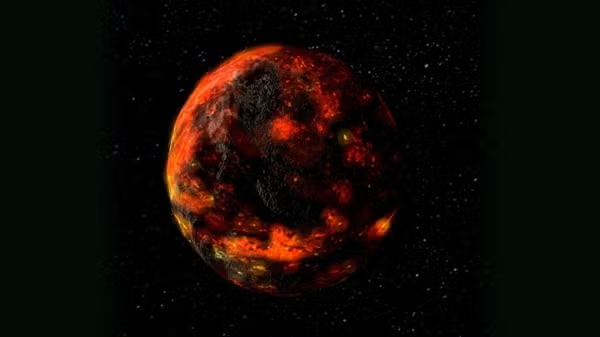ASU alumna's environmental passion advances efforts at the Nature Conservancy

Courtney Baxter graduated with her Bachelor of Science in animal physiology from the School of Life Sciences in 2013.
Courtney Baxter originally intended to get a degree in music from Arizona State University, but after having second thoughts, she changed to animal physiology, the study of how animals function.
“I switched during orientation after having existential dread about not making any money with a music degree," she said. "Joke's on me now. I work for a nonprofit!"
Baxter, who received her Bachelor of Science in animal physiology from the School of Life Sciences in 2013, answered some questions about her time at ASU and what she’s been up to since.
Question: What have you been up to since graduation?
Answer: After graduation, I received my master’s degree in zoology from Miami University in Oxford, Ohio, and have been pursuing a career in conservation ever since. I’ve worked for the ASU Global Institute of Sustainability, the Phoenix Zoo, Woodland Park Zoo and various other environmental nonprofits up here in Washington State.
Q: Tell us about your current role.
A: I am currently at the Nature Conservancy and I love it. It’s sort of the big leagues for environmental nonprofits. It’s the biggest in the world — we’re in 72 countries and every state in the U.S. I am stationed at the Seattle office and my title is Puget Sound conservation coordinator. I work on a variety of projects that endeavor to protect and revitalize Puget Sound. I do work on our water team that works with local communities to reimagine flood plains to make them safer for people and healthier for fish. I am also on our cities team that addresses toxic stormwater runoff issues by working with local communities.
Q: What’s your favorite part about the career path you have chosen?
A: I feel like I’m making a difference! I don’t want to be another person making this planet worse. It makes me feel better that the work I’m doing is making it a little better, even if it’s small.
Q: How did the College of Liberal Arts and Sciences and ASU help prepare you for success?
A: I had really excellent professors that helped guide me, particularly Kevin McGraw and Andrew Smith. Dr. McGraw helped me learn the fundamentals of hard science and running my own experiments, Dr. Smith helped me discover my passion for protecting the environment.
Q: What advice do you have for students?
A: Take your time. I was so concerned about graduating with a great GPA that I sort of forgot to have a college experience. I wish that I had studied abroad, but I am also fortunate that my grad school program offered that opportunity to me — which I definitely took! Travel is so important; I’d argue it can teach you things a university could never teach you. Go to a new place. Learn new things. Meet new people. Have new experiences. It’s all so invaluable.
Q: Do you have any recommendations for students in terms of a favorite class, club or experience at ASU?
A: Marching band was super fun. I only did it for a couple of seasons, but it was a blast and got me in the best shape of my life. Also, CACSCB is an incredible club that focuses on conservation biology — they have cool people come in to talk and host really fun field trips. My favorite class was mammalogy with Andrew Smith. I learned so much about field science and little nuances about mammalian species. It was so cool! If you can get into that class, do it. It was also probably the hardest class I took and it required the most studying, but I loved it and still use the knowledge that I learned from that class today.
Q: What advice do you have for alumni?
A: Don’t give up on your career. There have been a couple times where I’ve thought, “Maybe I should sell out and take a job that pays way more but isn’t in my field.” Don’t do it! You spend 40-plus hours a week doing your job. Don’t work for the weekends. Spend your precious time doing something that lights your fire.
Q: How would you describe your Sun Devil story?
A: Long and arduous, but worth it.
Q: Is there anything else you’d like to add?
A: I see Sun Devil fans out here every so often. I love that I can just throw up my pitchfork and know I’ll get one in return with an exuberant “Go Devils!”
To follow along with Baxter’s adventures and conservation efforts, check out her Instagram @baxtography.
More Science and technology

Compact X-ray laser lab aims to reveal deep secrets of life, matter and energy
X-rays allow us to view inside the human body to diagnose broken bones and other hidden problems. More recent X-ray advances are…

Apollo lunar samples enable ASU researcher to pinpoint moon’s crystallization timeline
A team of researchers, including Arizona State University geochemist Melanie Barboni, in collaboration with scientists from The…

NASA launches space telescope to chart the sky and millions of galaxies
California’s Vandenberg Space Force Base was the site for Tuesday’s 8:10 p.m. launch of the NASA SPHEREx mission aboard a SpaceX…

